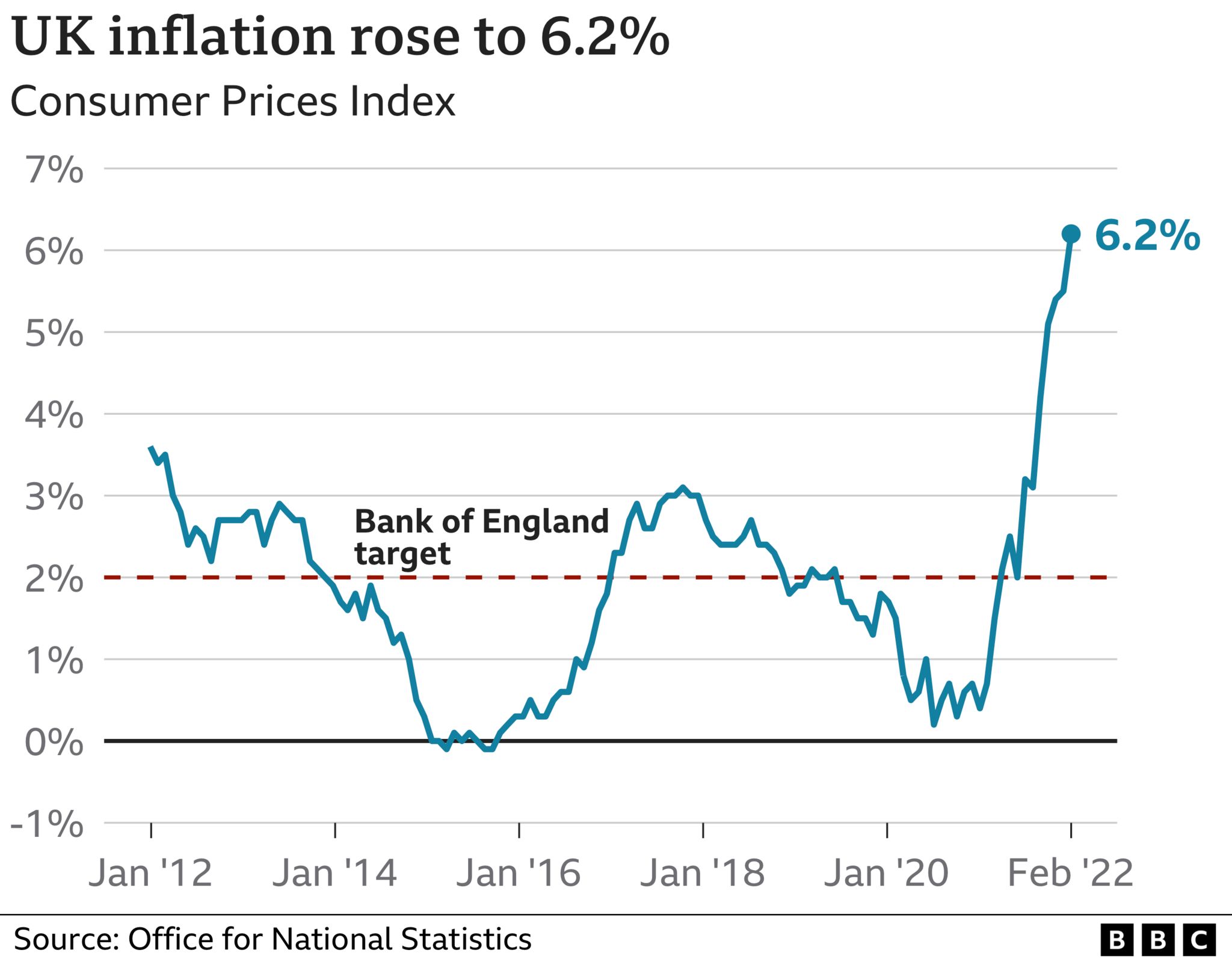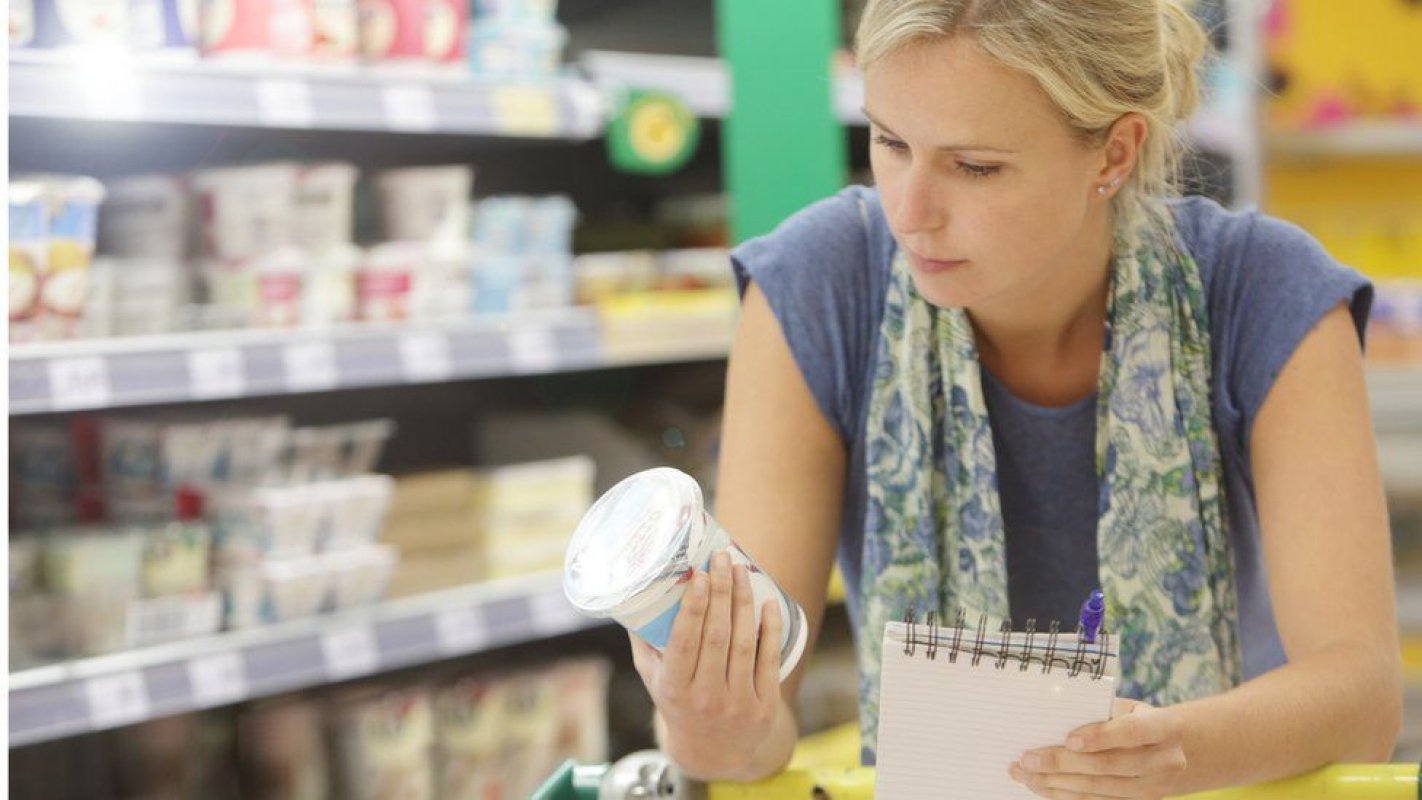Prices rose by 6.2% in the 12 months to February - the fastest for 30 years - as fuel, energy and food costs surged.
Chancellor Rishi Sunak faces growing calls to offer more support as household budgets are squeezed.
Prices are rising faster than wages and the Bank of England thinks it could hit double digits this year.
There is speculation Mr Sunak could cut fuel duty, boost benefits and raise the threshold for National Insurance when he sets out his Spring Statement later on Wednesday.
Inflation is the rate at which prices rise. If a bottle of milk costs £1 and that rises by 5p, then milk inflation is 5%.
Since December last year, prices have been rising at their fastest rate since the 1990s.
Helen Dickinson, chief executive of the British Retail Consortium, said: "Rising inflation remains a significant concern for the economy, squeezing household incomes and increasing cost pressures on retailers."
Inflation is expected to accelerate in April when the energy price cap is increased. This will push up the average household fuel bill up by £693 a year in England, Scotland and Wales, while a planned rise in National Insurance will also put pressure on household budgets.
According to Office for National Statistics (ONS), food prices rose nearly 1% between January and February, the largest increase since 2012.

Gas prices were almost a third higher than a year earlier, and electricity prices were up by nearly a fifth, while February saw the highest average diesel price on record.
Prices rose for a wide range of other goods and services, including toys, clothing and furniture, the ONS said.
"Clothing and footwear saw a return to traditional February price rises after last year's falls when many shops were closed," said its chief economist Grant Fitzner.
"Furniture and flooring also contributed to the rise in inflation as prices started to recover following new year sales," he added.
"The price of goods leaving UK factories has also been rising substantially and is now at its highest rate for 14 years."
Cost pressures
As pandemic restrictions have eased around the world, firms have faced higher energy, shipping and wage costs, which they have passed on to consumers.
Russia's invasion of Ukraine is now driving the price of oil and other key commodities even higher.
Andrew Selley is chief executive of Bidfood, one of the largest UK food wholesalers, which supplies more than 45,000 caterers and food firms.
He told the BBC's Today programme that food prices were rising fast. "We're seeing much bigger increases on things like cooking oil, chicken, cheese, butter. Nothing exotic - these are standard food staples and we're seeing much bigger increases in those at the moment."
Mr Selley said that compared with last year the price of diesel was up by 40% and electricity by 250%, "and those two things together make up over 10% of our total costs".
He added that a cut in fuel duty would help: "I mean, fuel is obviously a driver across the whole industry, both from getting [food] from the farmer to the manufacturer, from the manufacturers to ourselves and from ourselves to the customers, so any relief on fuel would help to mitigate some of those increases coming through."
Retrieved from:https://www.bbc.com/news/business-60833361(23 Mar, 2022)
The information provided on this website is for reference only. C21 International shall not be liable for any errors, omissions, misstatements, or misrepresentations (express or implied), concerning any Information, and shall not have or accept any liability, obligation, or responsibility whatsoever for any loss, destruction, or damage (including without limitation consequential loss, destruction or damage) howsoever arising from or in respect of using, misusing, inability to use, or relying on the Information.

